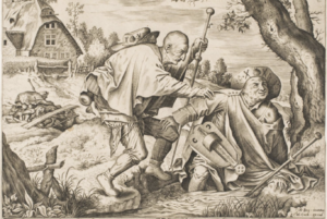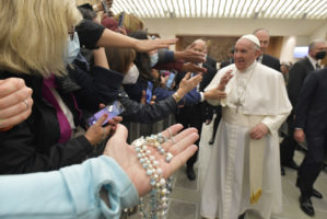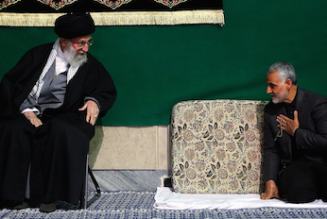ROSARIO, Argentina—Even though the COVID-19 coronavirus pandemic has seemingly put most of the world on hold, many scholars have continued with their research projects and are already planning ahead, thinking about the 2021 calendar to reschedule events postponed this year.
One such event is a day-long consultation at the University of Notre Dame, set to bring together some 30 participants from the United States and Germany to look into the lessons of national truth and reconciliation processes, and apply them to the Church on matters of clerical sexual abuse.
The organizers believe that major festering wounds continue to exist in the Church, including a lack of healing for victims of clerical abuse, a reticence to speak the truth about the abuse, and a lack of accountability. They believe that the many national processes in the political realm of the past generation may provide insights for how the Church as a whole might confront decades of abuse and cover-up.
Behind the project are German Dr. Katharina Westerhorstmann, Professor of Theology at Franciscan University of Steubenville, and Dr. Daniel Philpott, professor of political science at the University of Notre Dame. The project is being funded by a grant from the University of Notre Dame.
The consultation was originally scheduled for September 2020, but the pandemic forced its postponement, perhaps until Spring 2021. It will bring together lay people, theologians, survivors, advocates, journalists, scholars and bishops.
In a Zoom conversation with Crux, the two scholars explained that the idea originally came from Westerhorstmann, and by the time the then-visiting professor knocked on Philpott’s door, it felt as “God answering a question.”
“One day I was sitting in a daily Mass, during the summer of 2018, when the Pennsylvania report had come out and so had the revelations of abuse by [former Cardinal Theodore] McCarrick,” Philpott said.
The priest urged lay Catholics to use their knowledge and expertise to try to bring healing in the Church, which the scholar, who has promoted reconciliation as an activist in Kashmir and the Great Lakes Region of Africa, saw as a call to apply his knowledge on reconciliation to the Church. In February 2019, he wrote a piece in America magazine looking at the lessons of national truth and reconciliation processes, “and then Katharine knocked on my door.”
For three years Westerhorstmann had been praying to see how to best help the victims of clerical abuse she knew, participated on committees in Germany and published groundbreaking work on child abuse.
“I know victim survivors and how hard it can be for some of them to really flourish in life. There are so many obstacles for them to develop their talents — get married, lead good relations, live their faith –because of what they’ve experienced,” she said. “In the past decades, no one really took responsibility for that, acknowledged what happened. Only in recent years there’s been some acknowledgement, but so many people who could say more are still reluctant speak out, they only say what they are forced to say.”
“That’s really sad, because we’re talking about people’s lives, not trying to see how we best deal with a problem,” she said. “But survivors have a future, and I hope we can help them have a future that will be better for some from what it’s been so far for many.”
The fact that Westerhorstmann not only knew victims but also the perpetrator, who got away with his crimes, “made me really furious. Whenever I read about new cases, I get very angry. But I love the Church, and I believe we have to do more on this front, on behalf of the victims, but also together with them.”
In their project proposal, they said that the latest wave of sexual abuse revelations in the Catholic Church has given rise to widespread alienation from the Church among lay Catholics. While Church leaders, both in the Vatican and at the national level, have adopted measures in response to the crisis, the scholars claim their efforts have fallen short in four key respects:
— There has not been a full authoritative account of the truth about sex abuse and the response of bishops.
— There has been inadequate accountability for bishops and other high church officials.
— There has been little empathetic public acknowledgment of survivors of abuse on the part of the Church.
— There has been little genuine repentance among bishops for their role in the crisis.
They note that there have been many fruits from the national truth and reconciliation processes and commissions, including a public record of human rights violations, empathetic recognition of victims, accountability for perpetrators, the exoneration of falsely accused perpetrators, reparations, apologies, the erection of public memorials, the establishment of credibility for new leadership, and forgiveness.
During the consultation, a strong emphasis will be restorative justice. Philpott highlights that there are some pioneers on this issue in the United States, particularly in the Archdiocese of St. Paul-Minneapolis, under Archbishop Bernard Hebda.
RELATED: County attorney joins parishioners for listening session on abuse crisisv
Philpott notes that these efforts at restorative justice from Church officials work “within the bounds of realism” but having the “empathetic acknowledgement, for the victim to be able to tell their story and be heard by other people close to it – from priests to youth group leaders.”
“I think it is a very healing process and survivors get the acknowledgment that they hadn’t been able to get through the legal process alone.” he said.
He believes that the legal processes that are taking place are products of a needed reform, with judicial inquiries and punishments such as removal from the priesthood: “But that’s not enough for the victim, who is still deeply wounded.”
The two scholars believe there’s a need to consider instituting a “truth commission” for the Catholic Church, even if only at national or regional levels.
“Something that is systemic and holistic,” Philpott said. “We’re going to look into the usefulness of this this restorative idea expanded to the larger community.”
When it comes to publicly addressing clerical sexual abuse, Philpott has found that when he brings the matter up among other lay people or in academic settings, some react with an “it’s been taken care of” attitude, and others with resignation, believing any effort to further address the crisis will be in vain.
“But I think Katharina and I agree that there are still very deep wounds,” he said. “And as it happens in a nation state, if the wounds are unhealed, they have a way of coming back. This is what you see in the history of nations, including the United States with racism.”
Westerhorstmann acknowledged that in her country, particularly among theologians, the issue of abuse has only been addressed as a problem that happens within the Church, without taking into account the abuses that take place outside the institution, despite the fact that perpetrators follow similar patters to groom and manipulate their victims.
“In Germany, there’s this idea that we need to change the Church’s teaching on sexual morality and priestly celibacy to address the crisis,” she said. “But statistics don’t support this idea. Not every problem will be solved by changing structures. You have cases of sexual abuse in Judaism and Islam, too. People who have a role of spiritual leadership can easily use this kind of popularity to protect themselves from being held accountable, and this is very disturbing.”
But broadening the scope of the research, she clarifies, does not mean making excuses.
The two are focusing on the Church so it can move forward, “not forcing victims to forget, but hopefully, offering a frame within the procedure that would help people remain in the Church and find a home in the Church again. For this to happen though, we need to hold people accountable.”
Follow Inés San Martín on Twitter: @inesanma










